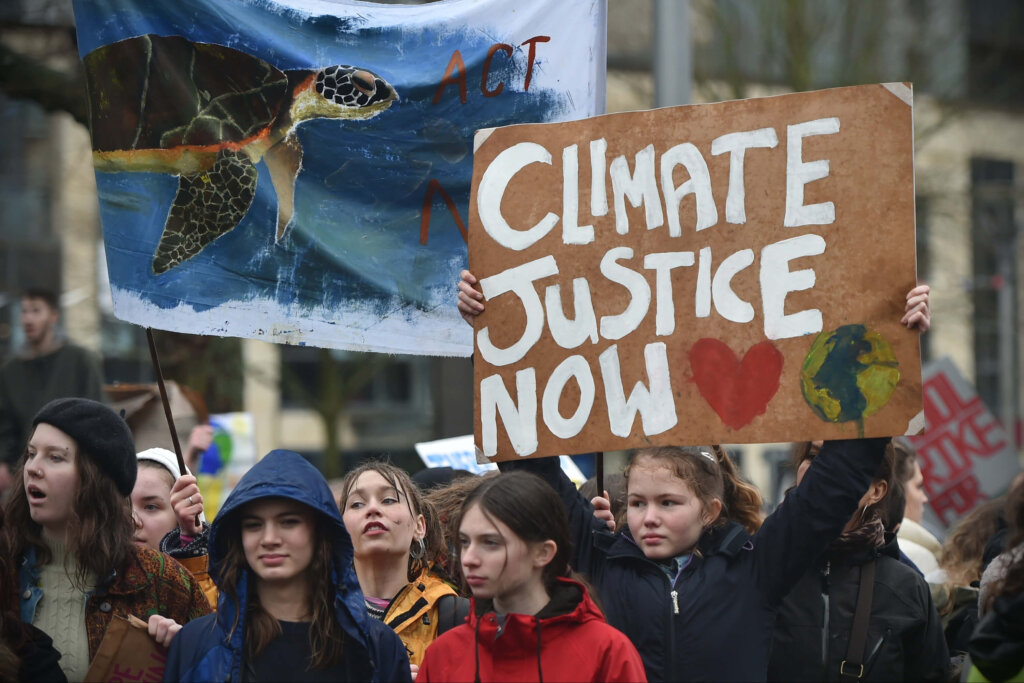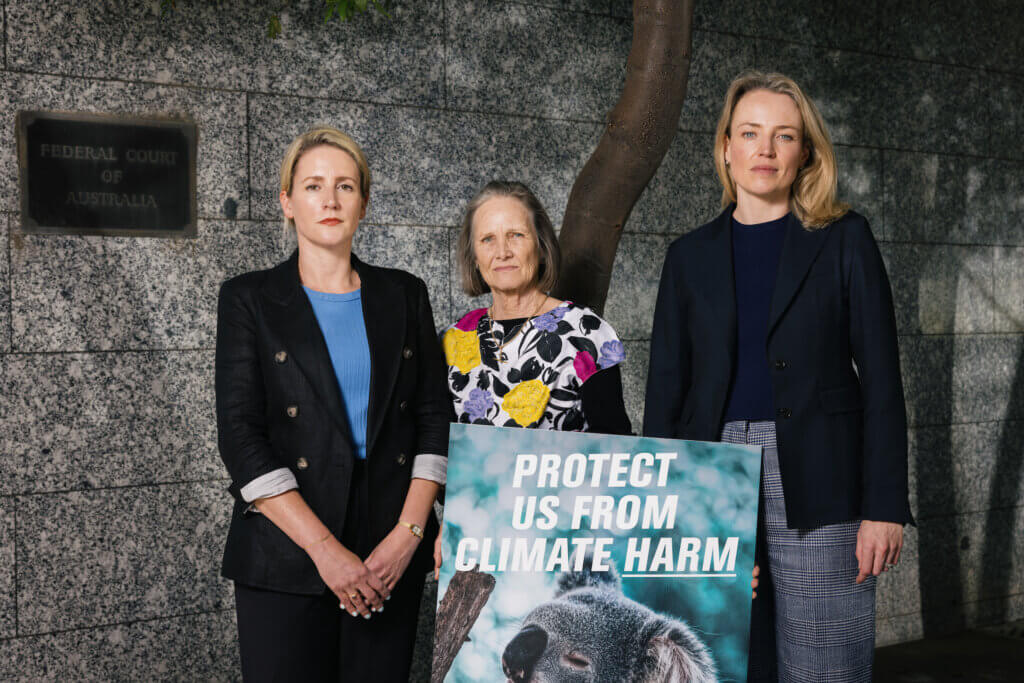With the UN's latest round of global climate talks drawing to a close in Dubai, hear from an EJA lawyer about the need to leverage the law for climate action and environmental justice.
The 28th Conference of the Parties to the United Nations climate change agreement – or “COP28” – has seen the world’s most powerful leaders come together to try and reach agreement on how to avert climate catastrophe.
These talks are vital for the future of our planet, but too often we’ve seen our leaders say all the right things while failing to act.
Australia has fronted the world stage claiming that our emissions projections have improved.
Chris Bowen, the Minister for Climate Change and Energy, announced that Australia is within “striking distance” of meeting its emissions reduction goals, but the reality is that our nation is still hooked on fossil fuels.

The promises and the reality
Advice given to Minister Bowen by the Climate Change Authority clearly says that we are not on track to meet our 2030 targets. What’s more, although we’ve made some progress by using renewables for electricity, greenhouse gas pollution from other sectors in Australia has hardly budged.
The magic number hanging over discussions at COP28 is 1.5°C. Every country in the world has its own climate pledges to keep warming levels from exceeding this limit. Every fraction of a degree above this limit means more extreme weather events: more bushfires, floods, and cyclones.
But worryingly, there is a growing mismatch between promises and reality. Using fossil fuels is the number one cause of climate change, yet Australia’s coal and gas production is set to increase.
The International Energy Agency says there can be no new fossil fuels if we want to meet our climate promises – but there are 25 coal and gas projects currently awaiting approval on the Environment Minister’s desk.
Despite the progress being claimed, it’s not just our domestic emissions we need to worry about. Australia must also take responsibility for the climate damage from all the coal and gas we ship out.
Emissions from the burning of fossil fuels in overseas end-markets are far larger than our direct domestic emissions, but these are not counted in our current emissions reduction targets and policies.
Australia is the world’s largest liquefied natural gas or ‘LNG’ exporter and consistently in the top three for coal.
We’re in the business of exporting emissions, and it means our true contribution to climate change is much bigger than we admit.
If the fossil fuel projects on the Minister’s desk all go ahead, they would lead to more than 20 billion tonnes of CO2 pollution being released worldwide.
At COP28, there is intense debate about how quickly we need to move away from fossil fuels and whether the world will commit to the rapid phase-out required by climate science.
With all eyes on the world’s main fossil fuel producers, Australia should feel the pressure to step up and commit to real change.
Using the law to seek climate justice
We can't rely on governments and fossil fuel producers to do the right thing. That's why at EJA, we believe in using the law to create a radically better world.
The law isn’t perfect. But recent years have shown that legal actions play a critical role in changing things for the better.
Climate litigation and other actions, coupled with courageous advocacy, can set new precedents, and bring novel issues and arguments before the courts.
Litigation is an especially powerful tool when used in partnership with frontline communities to fight for human rights, social justice and climate action. Regardless of whether the cases are won or lost, they can still create momentum for change.

The Living Wonders climate cases
Our brave client, the Environment Council of Central Queensland has been watching all the fanfare from Dubai as they get ready for the Living Wonders climate cases to be heard on appeal.
It’s unfair that politicians are saying all the right things to make Australia look good on the global stage, while giving the green light to mega-polluting fossil fuel projects back home.
That’s why our client is fighting to prevent Environment Minister, Tanya Plibersek, from approving two huge extensions to coal mines in NSW, without considering their climate impacts first.
The appeal will be heard by the Full Federal Court in February next year. The evidence filed in these cases cuts through the rhetoric and shows that it doesn’t matter where Australian coal or gas is burned: climate impacts are being experienced everywhere, including devastating effects for the iconic animals, plants and precious places – our living wonders - which the Minister is charged with protecting.
If this appeal is successful, our client aims to set a precedent so that harm caused by new coal and gas projects can never be ignored again.
Meanwhile, outside the court room, EJA lawyers are continuing to scrutinise subsidies for corporations that are wreaking climate damage, and standing alongside climate impacted communities as they fight for justice.
We also have a seat at the table as the Albanese Government begins to draft Australia’s new national environment laws.
The proposed laws aren't there yet, but we remain hopeful that the ambition is there, and that government will continue working with stakeholders to make the transformational changes required to address the climate and extinction crisis.
Retta Berryman, Senior Specialist Lawyer and Climate Lead

